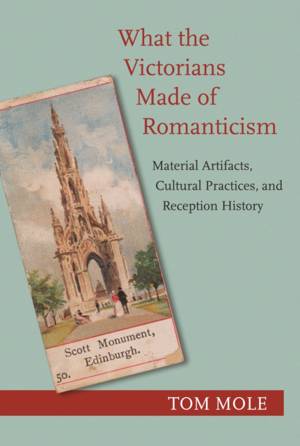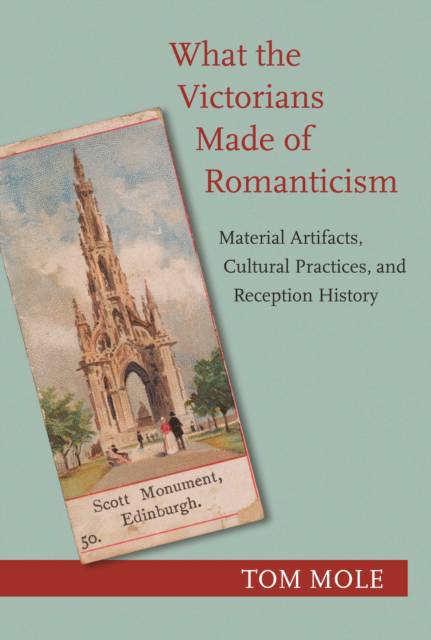
En raison d'une grêve chez bpost, votre commande pourrait être retardée. Vous avez besoin d’un livre rapidement ? Nos magasins vous accueillent à bras ouverts !
- Retrait gratuit dans votre magasin Club
- 7.000.000 titres dans notre catalogue
- Payer en toute sécurité
- Toujours un magasin près de chez vous
En raison de la grêve chez bpost, votre commande pourrait être retardée. Vous avez besoin d’un livre rapidement ? Nos magasins vous accueillent à bras ouverts !
- Retrait gratuit dans votre magasin Club
- 7.000.0000 titres dans notre catalogue
- Payer en toute sécurité
- Toujours un magasin près de chez vous
What the Victorians Made of Romanticism
Material Artifacts, Cultural Practices, and Reception History
Tom Mole
Livre broché | Anglais
59,95 €
+ 119 points
Description
This insightful and elegantly written book examines how the popular media of the Victorian era sustained and transformed the reputations of Romantic writers. Tom Mole provides a new reception history of Lord Byron, Felicia Hemans, Sir Walter Scott, Percy Bysshe Shelley, and William Wordsworth--one that moves beyond the punctual historicism of much recent criticism and the narrow horizons of previous reception histories. He attends instead to the material artifacts and cultural practices that remediated Romantic writers and their works amid shifting understandings of history, memory, and media.
Mole scrutinizes Victorian efforts to canonize and commodify Romantic writers in a changed media ecology. He shows how illustrated books renovated Romantic writing, how preachers incorporated irreligious Romantics into their sermons, how new statues and memorials integrated Romantic writers into an emerging national pantheon, and how anthologies mediated their works to new generations. This ambitious study investigates a wide range of material objects Victorians made in response to Romantic writing--such as photographs, postcards, books, and collectibles--that in turn remade the public's understanding of Romantic writers. Shedding new light on how Romantic authors were posthumously recruited to address later cultural concerns, What the Victorians Made of Romanticism reveals new histories of appropriation, remediation, and renewal that resonate in our own moment of media change, when once again the cultural products of the past seem in danger of being forgotten if they are not reimagined for new audiences.Spécifications
Parties prenantes
- Auteur(s) :
- Editeur:
Contenu
- Nombre de pages :
- 336
- Langue:
- Anglais
Caractéristiques
- EAN:
- 9780691202921
- Date de parution :
- 09-06-20
- Format:
- Livre broché
- Format numérique:
- Trade paperback (VS)
- Dimensions :
- 154 mm x 232 mm
- Poids :
- 362 g

Les avis
Nous publions uniquement les avis qui respectent les conditions requises. Consultez nos conditions pour les avis.






